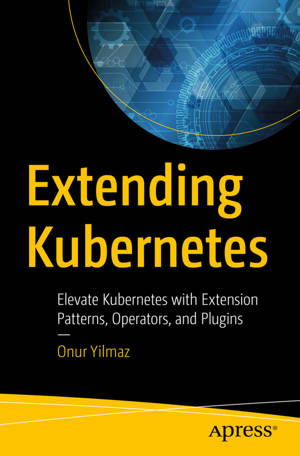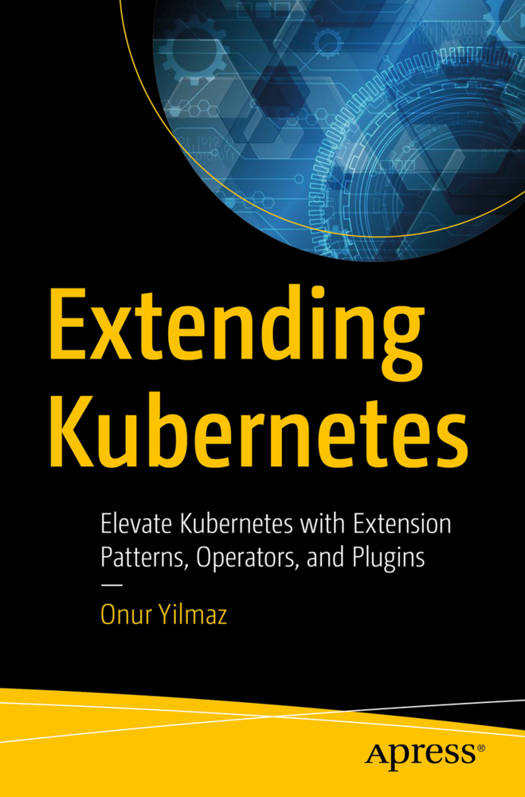
- Retrait gratuit dans votre magasin Club
- 7.000.000 titres dans notre catalogue
- Payer en toute sécurité
- Toujours un magasin près de chez vous
- Retrait gratuit dans votre magasin Club
- 7.000.0000 titres dans notre catalogue
- Payer en toute sécurité
- Toujours un magasin près de chez vous
Extending Kubernetes
Elevate Kubernetes with Extension Patterns, Operators, and Plugins
Onur YilmazDescription
Rely on this comprehensive guide to understand the extension patterns and discover the extension plugins for Kubernetes.
In this book, state-of-the-art extension patterns and extension points of Kubernetes are covered in depth with real-life use cases and examples. There are comprehensive discussions in the text on all possible aspects of Kubernetes, starting from end-user to the fully-automated controller development. The book focuses on creating applications that work on Kubernetes and also interact and operate Kubernetes itself.
The book starts with a recap of Kubernetes, its rich configuration options, extension patterns, and points. The journey of extending Kubernetes starts with the CLI tool plugins. By the end of this section, you will be able to create and manage kubectl plugins. Then, the API access plugins with authentication and authorization webhooks are presented. In this section, you will learn how to extend and interfere with the API flow of Kubernetes. You then move on to learn how to extend Kubernetes API with new resources and controllers. You will make Kubernetes API work for you by creating a Kubernetes operator. Extensions for Kubernetes schedulers are covered to create a custom scheduler and run it side-by-side with the default scheduler. Finally, the last extension points will be discussed for the infrastructure, such as networking or storage. At the end of the text, you will learn the upcoming extension points. This book is designed to cover all the extension points of Kubernetes with state-of-the-art implementations.
This book is intended for those who wish to understand Kubernetes in depth and go further by making Kubernetes work for their custom requirements. By the end of this book, readers with a cloud-native mindset will broaden their vision to create future-proof applications. Rather than focus on overwhelming theoretical information and YAML files for Kubernetes resources, readers are provided with the philosophy behind Kubernetes extensions. With real-life examples and hands-on development steps, you will be more confident in working with Kubernetes.
What You Will Learn
- Know the Kubernetes extension patterns and available extension points
- Be familiar with the philosophy behind Kubernetes extensions and how they should be integrated into the clusters
- Design Kubernetes extensions and make Kubernetes work for you
- Develop, deploy, and operate plugins for Kubernetes ranging from the CLI tool to custom resources, schedulers, infrastructure, and more
- Study real-life use cases for extending Kubernetes with code examples
Who This Book Is For
Software engineers, developers, DevOps engineers, cloud security analysts, architects, and managers who have Kubernetes in their short- and long-term plans
Spécifications
Parties prenantes
- Auteur(s) :
- Editeur:
Contenu
- Nombre de pages :
- 247
- Langue:
- Anglais
Caractéristiques
- EAN:
- 9781484270943
- Date de parution :
- 29-05-21
- Format:
- Livre broché
- Format numérique:
- Trade paperback (VS)
- Dimensions :
- 156 mm x 234 mm
- Poids :
- 371 g

Les avis
Nous publions uniquement les avis qui respectent les conditions requises. Consultez nos conditions pour les avis.






